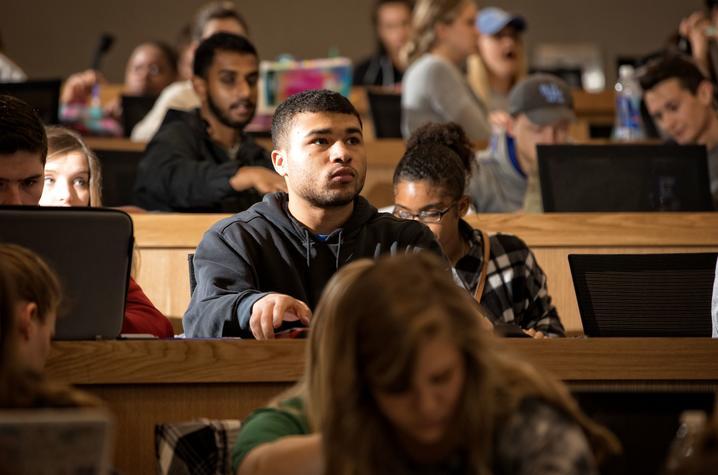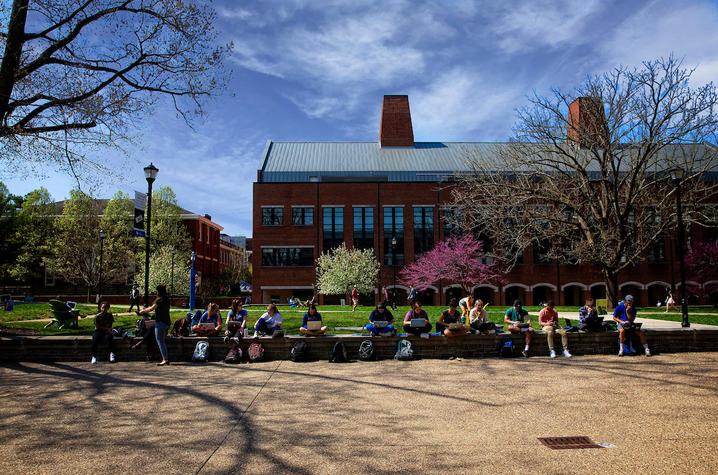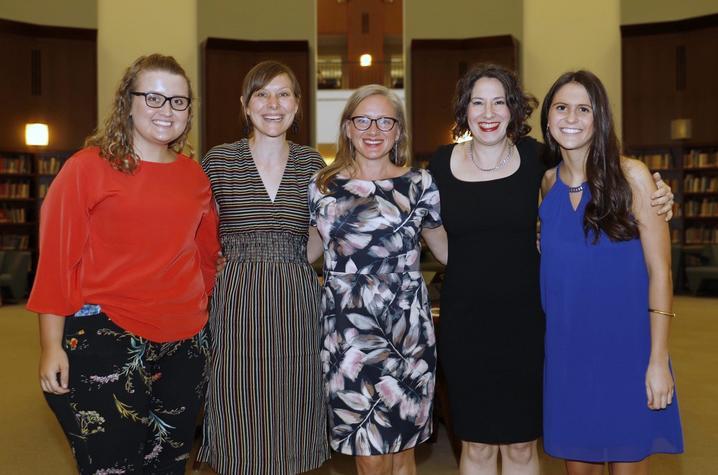UK's Spring 2019 Dean's List Announced
By Lori Adams

The University of Kentucky has released its Dean's List for the spring 2019 semester. A total of 6,562 students were recognized for their outstanding academic performance.
By Lori Adams

The University of Kentucky has released its Dean's List for the spring 2019 semester. A total of 6,562 students were recognized for their outstanding academic performance.
By Whitney Hale
The University of Kentucky Office of Nationally Competitive Awards has announced that seven recent UK graduates and four doctoral students have been offered Fulbright U.S. Student Program scholarships. The UK recipients are among approximately 2,000 U.S. students who will travel abroad for the 2019-20 academic year.
By Carl Nathe
Anthropology is the study of human culture in the past and the present. University of Kentucky Professor Richard "Dick" Jefferies is now in his fourth decade as a faculty member in the Department of Anthropology, within UK’s College of Arts and Sciences.
In his work of teaching, research and service, Jefferies, an archaeologist, uncovers objects that shed light on how people in Kentucky and elsewhere lived hundreds and even thousands of years ago.
By Carl Nathe
Anthropology is the study of human culture in the past and the present. University of Kentucky Professor Richard "Dick" Jefferies is now in his fourth decade as a faculty member in the Department of Anthropology, within UK’s College of Arts and Sciences.
By Lindsey Piercy

Mark Cornelison | UK Photo.
The University of Kentucky has been awarded a $25,000 Project Graduate Grant from the Kentucky Council on Postsecondary Education (CPE). The strategic funds will be used to boost degree completion of former students with 80 or more credit hours.
In total, $300,000 will be spread among six Kentucky campuses, to help students succeed in college.
By Lindsey Piercy
Sharrah Lane, a doctoral student in Hispanic Studies and president of the University of Kentucky's chapter of Sigma Delta Pi, has received the prestigious Gabriela Mistral Award for her academic achievements and noteworthy leadership in the chapter.
Sigma Delta Pi is a national collegiate Hispanic honor society, and the award is presented each year to an outstanding undergraduate or graduate student who is an active member.
By Whitney Hale

Emily Hedges (far left) and Hannah Thompson (far right) were joined by faculty sponsor Miriam Kienle, Interim Dean of UK Libraries Deirdre Scaggs and faculty sponsor Janice Fernheimer. Mark Cornelison l UK Photo.